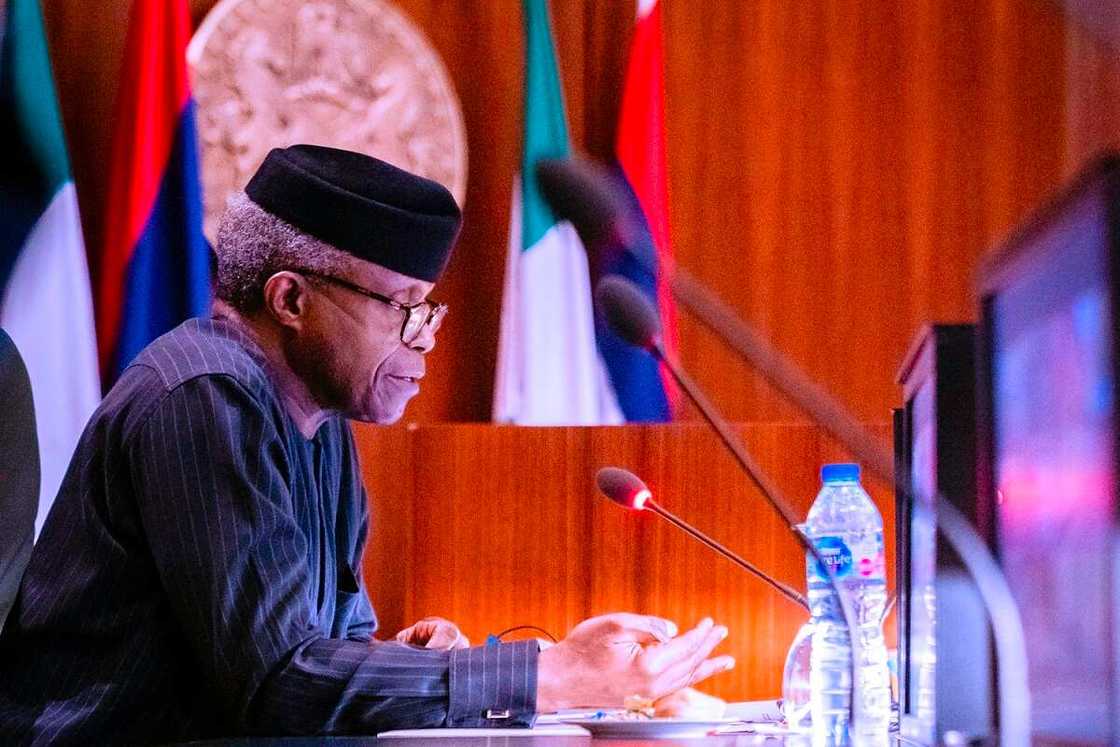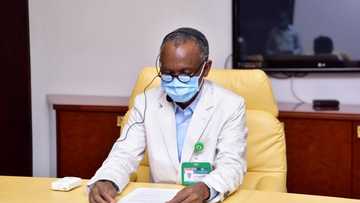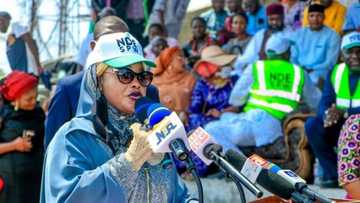FG Positions 2 Agencies to Make Electricity Accessible to Nigerians
- The federal government through two agencies would be making sufficient electricity available to Nigerians in various communities
- The agencies are the Niger Delta Power Holding Company and the Rural Electrification Agency
- According to the vice president the initiative would be rolled out in the six regions of Nigeria
PAY ATTENTION: Click “See First” under the “Following” tab to see Legit.ng News on your Facebook News Feed!
To improve the accessibility of electricity to all Nigerians across the country, the Federal Government through the Niger Delta Power Holding Company (NDPHC) and the Rural Electrification Agency (REA) is implementing the Economic Sustainability Plan (ESP)’s Solar Power Naija programme.
The programme will provide electricity access to five million households, serving about 25 million Nigerians in rural areas and under-served urban communities nationwide.
According to vice president Yemi Osinbajo who flagged off the initiative in Jangefe community, the rollout will continue across the six geopolitical zones in Edo, Lagos, Adamawa, Anambra, Kebbi, and Plateau.
Recently, Jangefe, a small community in Roni local government area (in the Kazaure Emirate) of Jigawa State, was the location for the commencement of the President Muhammadu Buhari-led solar power scheme.
With the launch of scheme, the community will get 1,000 solar home systems connections for its about 5,000 population.

Source: Twitter
Other solar companies are also in the pipeline for the Solar Power Naija facility to continue the march to five million connections during the life of this administration, the vice president said.
From Jangefe, the scheme will then go to the entire 36 states and the FCT covering 25million Nigerians in the end.
This will further improve access to electricity nationwide, especially as available statistics (World Bank 2020 report) indicate that 97 million people, or 47 percent of Nigeria’s population do not get electricity from the national grid.
The commencement of the ESP Solar Power Naija programme marks a significant leap from what, in the past decade, had seemed like an impossible task of expanding electricity access, especially to rural communities.
At the end of the implementation of the scheme, the two agencies which would lead other private sector partners would have provided electricity access to 25 million Nigerians across the country.
It would also create over 250,000 jobs in solar power assembling, servicing, maintenance, and payment systems.
According to the Solar Power Naija implementation blueprint, the agency will drive the implementation while private companies will install and manage the home systems, drawing funding from a low-cost loan facility from the Central Bank of Nigeria (CBN).
Through a World Bank and REA programme called the Nigerian Electrification Program (NEP), each connection under the Solar Power Naija programme will receive a 20% rebate for the developer.
This will make room for the rates charged to consumers to be reduced by the same amount.
On the role of REA in the implementation process, Osinbajo said that structures have been put in place to make the connections costs affordable for all.
His words:
"The programme incorporates several innovative solutions to increase affordability for the citizens while also providing sufficient comfort to investors and financiers alike."
Addressing journalists on the sideline of the flag-off event at Jangefe community in Jigawa state, the managing director of the NDPHC, Chiedu Ugbo, said 20,000 units are already being enjoyed by communities in Nigeria.
Ugbo said 500 jobs have also been created from the initiative.
He said:
“It is an economic programme of government as well. What that means is that it is beyond providing electricity. We have job creation as part of the benefits of this scheme.
Recently, many Nigerians have commended the federal government's effort to channel electricity generation and distribution in the country to solar sources.
For some Nigerians, the move by the federal government will increase local content in the off-grid value chain.
These Nigerians said this will facilitate the growth of the local manufacturing industry, while the use of local content will be incentivized.
See tweets below:
Some other Nigerians also praised the vice president for his efforts in ensuring the citizens of the country have access to better electricity choices unlike in the past.
Some other Nigerians already involved in solar installation and its process have also shown interest and made inquiries on how they can be part of the project.
Meanwhile, Legit.ng previously reported that the federal government had promised that it had no plans to increase the electricity tariffs.
The Nigerian Electricity Regulatory Commission (NERC) said it is totally committed to alleviating the plight of poor Nigerians rather than increasing it.
According to the NERC chairman, James Momoh, electricity distribution companies can only increase tariffs after citizens have been consulted.
In other news, VP Osinbajo had said that Nigerians are willing to pay for electricity considering the epileptic power supply suffered by citizens for a long period of time.
The vice president also said that such acceptance from Nigerians would be dependant on the quality of services delivered by the distribution companies to various communities and homes.
He encouraged the DISCOS to focus on delivering better and constant electricity to citizens across the country.
Do you think Tinubu can become Nigeria's next president | Legit TV
Source: Legit.ng







